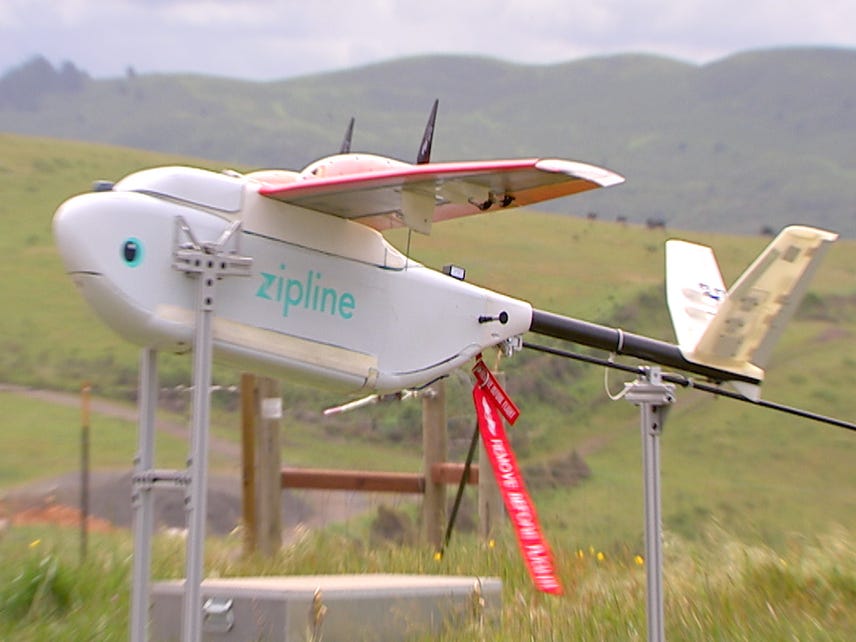
High in the sky south of San Francisco, droning company Zipline is partnering with UPS to test aerial deliveries.
But it's not just any parcel taking off.
Starting this summer in Africa, drones like this will be delivering desperately needed medical supplies.
UPS, Zipline, and [INAUDIBLE] are going to be delivering lifesaving Commodities, medicines, blood in Rwanda.
This isn't your typical multicopter or unmanned aerial vehicle.
It is a fixed-wing drone that is capable of carrying 1.5 kilograms of medical goods and traveling a range of a 120 kilometers.
The fuselage is made of carbon fiber and Kevlar.
This makes the entire aircraft lightweight tipping the scales at just ten kilos or
[BLANK_AUDIO].
They also fly below 400 feet and can operate in 99% of weather conditions.
A delivery hub can fulfill 100 drops everyday with requests arriving by text messages or phone call.
An operator packs the order and scans the QR code that gives the drone a route to the destination.
It fly's automatically, dropping the payload in a landing zone a size of three parking spaces.
Back on solid ground we're not allowed to show you the proprietary landing system, that's a secret.
All we can tell you is that the drone is designed to take off and land in very short distances.
Close the door, put the parachute in.
Zipline says that the cost of drone delivery is no more expensive than using motor bikes or trucks.
Jake is actually using the work that the Rwandan governments doing as a model to actually scale this up globally so we can do things like global vaccination campaign in other countries as well.
Testing delivering in Rwanda will generate safety information to feed back to the federal aviation administration and likely lay the ground work for drone deliveries in the United States
States.
U.S. companies like Amazon and Walmart.
Are all ready experimenting with droid delivery.
But federal regulations are still being debated.
There's always an application.
During a disaster relief crisis situation.
To do recognizance.
To find out where the disaster [INAUDIBLE] Where people are to rescue them.
So you're always gonna have an application like that, domestically and overseas as well.
So we'll obviously learn a lot about this process, but this is strictly a humanitarian mission.
And we're excited to be a part of it.
Starting in July, for Rwandans in need of medical supplies, things are looking up.